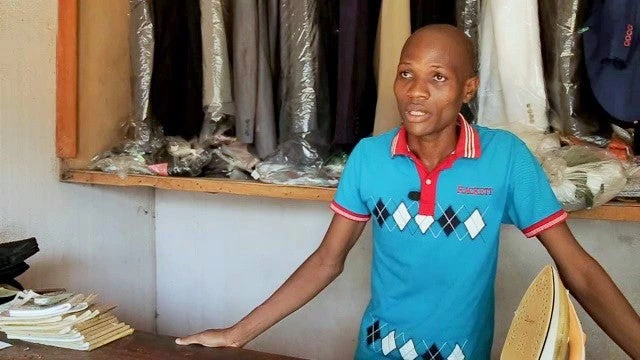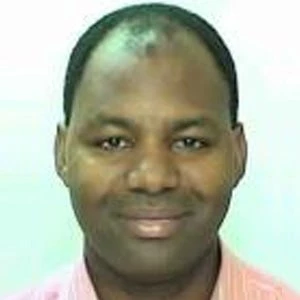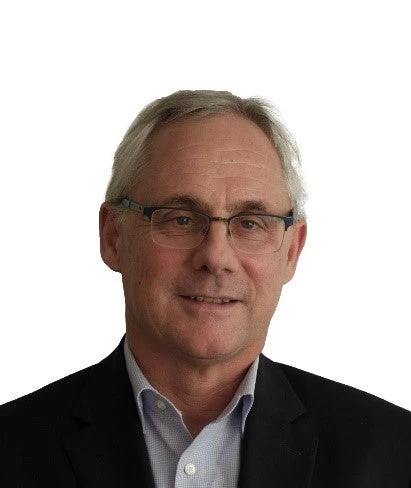The story of a country’s economic development is often told through the lens of new roads, factories, power lines, and ports. However, it can also be told through the voices of every day heroes, individuals who have taken action to improve their lives and those
around
them.
In this blog series, the World Bank Group, in partnership with the Ivorian newspaper Fraternité Matin and blogger Edith Brou, tells the stories of those individuals who, with a boost from a Bank project, have set economic development in motion in their communities.
Once jobless, Prince Brokou becomes a businessman
I met Prince Brokou four years ago in 2013, when he joined a road maintenance group as part of the Youth Employment and Skills Development Project (PEJEDEC) funded by the World Bank. At the time, he was still living with his parents in Yopougon, a sprawling suburb of Abidjan.
Brokou performed labor-intensive public works such as clearing out detritus from clogged road gutters that result in flooding during Côte d’Ivoire’s rainy season. This short-term activity allowed him to earn a monthly salary of CFAF 60,000 (about $124) for six months, and receive training on how to set up a small business to ensure his transition to future employment. He was also able to benefit from classes on civics, community development, public health, HIV/AIDS, and the environment.

I caught up with Brokou after his experience, and found one happy young man. Armed with new entrepreneurial skills and a head full of projects, he started with a small phone kiosk before expanding his activities to a dry cleaning business in his native city of Gagnoa, in south central Côte d’Ivoire. "I am a business man now. I have hired two of my little brothers who were previously jobless. Thanks to the PEJEDEC, I was able to save money and not beg anyone for help,” said Brokou. His status may have changed, but he remains loyal to his origins and compelled to reinvest in doing business and providing services in his community.
In the aftermath of post-election violence in October 2010, the World Bank and the Ivorian government worked together in order to design a job creation program aimed at providing a first job opportunity for thousands of unqualified youth who were the victims of 10 years of political turmoil in the country. The PEJEDEC gave youth not only a job, but also recognition and the hope for a better future. Following an initial grant of $50 million, the project has so far benefitted over 27,500 young people.
In March 2015, the project received additional 50 million funding to expand its targets and geographical areas, particularly in rural areas. It is also providing activities designed specifically for women. Young Aya Aristide N'Dri from Katiola, in the Hambol region, was able to transform her situation thanks to the project. Having finished her studies in accounting in 2012, it was only with the PEJEDEC that she was able to benefit from an internship at a banking agency based in Yamoussoukro that eventually led to her obtaining a permanent position with the bank.
In an effort to continue the discussion, we would like to hear your thoughts on the questions below.
Share your answers to these questions in the comments below!
Jacques and Taleb took turns in writing this blog post series:
Jacques Morisset is the World Bank Lead Economist and Program Leader for Cote d’Ivoire. After receiving his PhD in economics from the University of Geneva, he has held various positions at the World Bank and IFC, while collaborating with the World Economic Forum. He has published in academic journals, including the World Bank Economic Review, Journal of Development Economics, and World Development. He was a member of the Board of the World Bank Economic Review.
Taleb Ould Sid’Ahmed is a senior communication officer at the World Bank Country Office in Abidjan. He has a doctorate in international development studies from Stendhal University (Grenoble III), a master’s in press and information sciences from Tunisia and master’s degree in Sustainable development and Economic Ethics from Centre de Recherche et d'Action pour la Paix (CERAP) of Abidjan.
In this blog series, the World Bank Group, in partnership with the Ivorian newspaper Fraternité Matin and blogger Edith Brou, tells the stories of those individuals who, with a boost from a Bank project, have set economic development in motion in their communities.
Once jobless, Prince Brokou becomes a businessman
Prince Brokou
I met Prince Brokou four years ago in 2013, when he joined a road maintenance group as part of the Youth Employment and Skills Development Project (PEJEDEC) funded by the World Bank. At the time, he was still living with his parents in Yopougon, a sprawling suburb of Abidjan.
Brokou performed labor-intensive public works such as clearing out detritus from clogged road gutters that result in flooding during Côte d’Ivoire’s rainy season. This short-term activity allowed him to earn a monthly salary of CFAF 60,000 (about $124) for six months, and receive training on how to set up a small business to ensure his transition to future employment. He was also able to benefit from classes on civics, community development, public health, HIV/AIDS, and the environment.

I caught up with Brokou after his experience, and found one happy young man. Armed with new entrepreneurial skills and a head full of projects, he started with a small phone kiosk before expanding his activities to a dry cleaning business in his native city of Gagnoa, in south central Côte d’Ivoire. "I am a business man now. I have hired two of my little brothers who were previously jobless. Thanks to the PEJEDEC, I was able to save money and not beg anyone for help,” said Brokou. His status may have changed, but he remains loyal to his origins and compelled to reinvest in doing business and providing services in his community.
In the aftermath of post-election violence in October 2010, the World Bank and the Ivorian government worked together in order to design a job creation program aimed at providing a first job opportunity for thousands of unqualified youth who were the victims of 10 years of political turmoil in the country. The PEJEDEC gave youth not only a job, but also recognition and the hope for a better future. Following an initial grant of $50 million, the project has so far benefitted over 27,500 young people.
In March 2015, the project received additional 50 million funding to expand its targets and geographical areas, particularly in rural areas. It is also providing activities designed specifically for women. Young Aya Aristide N'Dri from Katiola, in the Hambol region, was able to transform her situation thanks to the project. Having finished her studies in accounting in 2012, it was only with the PEJEDEC that she was able to benefit from an internship at a banking agency based in Yamoussoukro that eventually led to her obtaining a permanent position with the bank.
In an effort to continue the discussion, we would like to hear your thoughts on the questions below.
- Do you think that these training programs (or sometimes retraining programs) are helping young people in search of jobs in your country?
- What kind of people should be targeted by these types of programs? Young people? Women? Or those who are unemployed?
Share your answers to these questions in the comments below!
Jacques and Taleb took turns in writing this blog post series:
Jacques Morisset is the World Bank Lead Economist and Program Leader for Cote d’Ivoire. After receiving his PhD in economics from the University of Geneva, he has held various positions at the World Bank and IFC, while collaborating with the World Economic Forum. He has published in academic journals, including the World Bank Economic Review, Journal of Development Economics, and World Development. He was a member of the Board of the World Bank Economic Review.
Taleb Ould Sid’Ahmed is a senior communication officer at the World Bank Country Office in Abidjan. He has a doctorate in international development studies from Stendhal University (Grenoble III), a master’s in press and information sciences from Tunisia and master’s degree in Sustainable development and Economic Ethics from Centre de Recherche et d'Action pour la Paix (CERAP) of Abidjan.



Join the Conversation